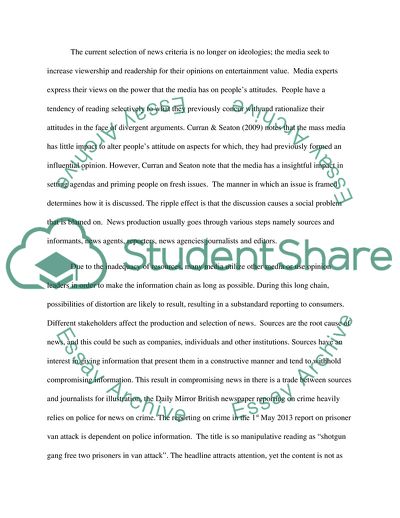Cite this document
(Current Debates about the Factors Shaping the Selection and Production of News Literature review Example | Topics and Well Written Essays - 1750 words - 1, n.d.)
Current Debates about the Factors Shaping the Selection and Production of News Literature review Example | Topics and Well Written Essays - 1750 words - 1. https://studentshare.org/journalism-communication/1801821-research-based-critical-review-current-debates-about-the-factors-shaping-the-selection-and-production-of-news
Current Debates about the Factors Shaping the Selection and Production of News Literature review Example | Topics and Well Written Essays - 1750 words - 1. https://studentshare.org/journalism-communication/1801821-research-based-critical-review-current-debates-about-the-factors-shaping-the-selection-and-production-of-news
(Current Debates about the Factors Shaping the Selection and Production of News Literature Review Example | Topics and Well Written Essays - 1750 Words - 1)
Current Debates about the Factors Shaping the Selection and Production of News Literature Review Example | Topics and Well Written Essays - 1750 Words - 1. https://studentshare.org/journalism-communication/1801821-research-based-critical-review-current-debates-about-the-factors-shaping-the-selection-and-production-of-news.
Current Debates about the Factors Shaping the Selection and Production of News Literature Review Example | Topics and Well Written Essays - 1750 Words - 1. https://studentshare.org/journalism-communication/1801821-research-based-critical-review-current-debates-about-the-factors-shaping-the-selection-and-production-of-news.
“Current Debates about the Factors Shaping the Selection and Production of News Literature Review Example | Topics and Well Written Essays - 1750 Words - 1”. https://studentshare.org/journalism-communication/1801821-research-based-critical-review-current-debates-about-the-factors-shaping-the-selection-and-production-of-news.


